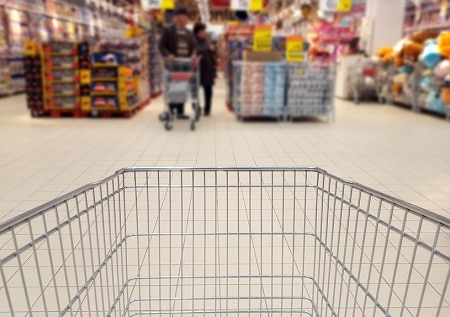Retailers could reduce an estimated 350,000 tonnes of avoidable household food waste per year via changes to packaging and ‘Use By’ dates, a survey by WRAP has claimed today (27 February).
The Retailer Survey – which is used to inform WRAP’s work on meeting the Courtauld Commitment 2025 – is based on data collected across 9,000 individual food items as well as 78 retail stores across England, Wales and Scotland.
WRAP suggests around 2 million tonnes of food thrown away by households is due to ‘not being used in time’ – a third of which is based on date guidance issued by retailers.
Food waste
The organisation adds that communication from retailers on the benefits of ‘more optimal storage, supported by changes to labelling’ would see annual food waste savings.
Technical changes to packaging have already yielded results, with WRAP estimating that around 15% of the 1 million tonne reduction in household food waste between 2007 and 2015 was achieved through innovations such as choice of date mark and freezing advice.
Findings
WRAP’s survey – the first conducted since 2009 – found some step-changes have already taken place in the way food items are labelled.
It noted an ‘almost complete removal’ of ‘Display Until’ dates used in combination either ‘Use By’ or ‘Best Before’ – which it claims had been a source of consumer confusion on almost 40% of packaged food items.
And, WRAP approved of changes to labelling on products such as hard cheese and pasteurised fruit juice, which have largely shifted from a ‘Use By’ to ‘Best Before’ date. However, the opposite has been observed on some yoghurt and world bread products.
The report notes: “There are legitimate reasons why some products may change from a ‘Best Before’ date to a ‘Use By’, for example due to changes in ingredients, preservatives or processing and packaging technologies, but this decision should always be made on the basis of food safety, rather than becoming a default position.”
Freezing
The report goes on to indicate ‘good progress’ has been made on removing ‘Freeze on day of purchase’ following publication of new guidance by WRAP and the Food Standards Agency in 2010.
However, the use of the ‘snowflake logo’ to indicate suitability for home freezing has reduced – ‘possibly due to pressure on pack space’ – and the organisation argues more needs to be done to reinforce the value of the symbol.
“Our report shows a mixed bag in terms of overall results. There are areas where good work continues to make a real difference and others where there is room for improvement.”
Steve Creed, director
WRAP
WRAP also welcomed reduced packaging for some food items such as salads, vegetables and potatoes, but again observed a trend away from this in a range of pre-packaged breads.
Steve Creed, director at WRAP, said: “Our report shows a mixed bag in terms of overall results. There are areas where good work continues to make a real difference and others where there is room for improvement.
“These insights provide a crucial snapshot of what industry is doing, and where more work is needed.”
Sainsbury’s
At the National Food Waste Conference in London last week, James Skidmore, environmental resource manager at Sainsbury’s, spoke of the challenges associated with ‘Best Before’ labelling, as well as in-store freezing of products reaching expiry.
The post Retailers urged to tackle food waste via labelling appeared first on letsrecycle.com.
Source: letsrecycle.com Packaging




